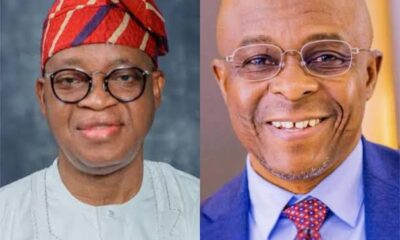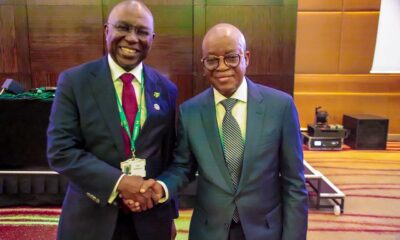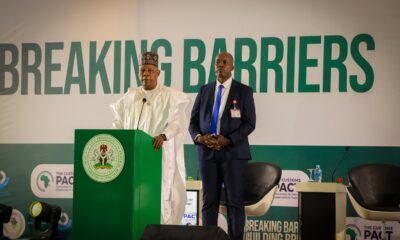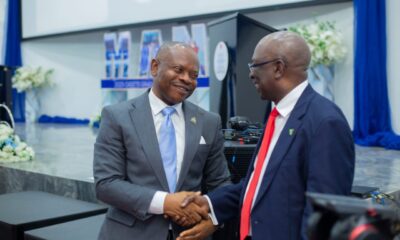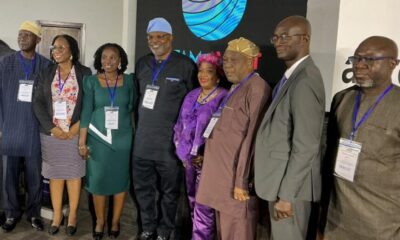Transport
It’s Time to Scrap FMW, Unbundle Nigeria Railway Corporation – Expert
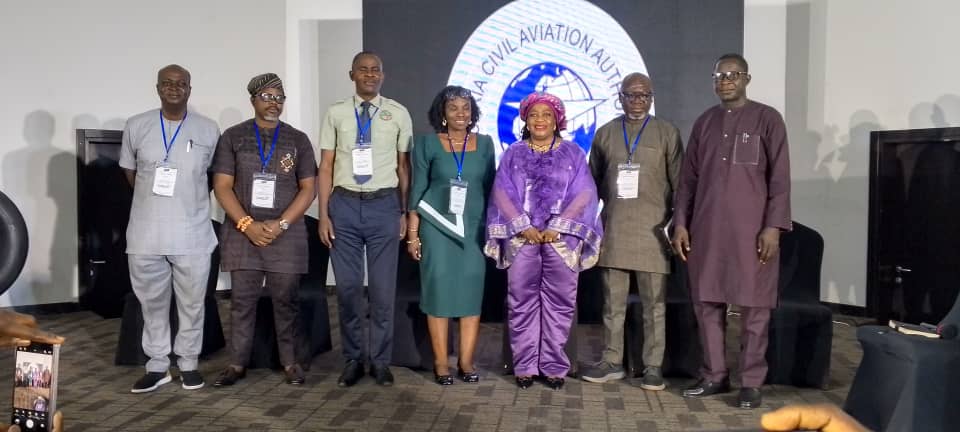
BY GBOGBOWA GBOWA
In a bold call for structural reform, transportation expert and media executive Mr. Frank Kintum has urged President Bola Ahmed Tinubu to dismantle the Federal Ministry of Works (FMW) and decentralize the Nigeria Railway Corporation (NRC), arguing that such moves would unlock efficiency and accountability in Nigeria’s transport infrastructure.
Speaking at the recent transport infrastructure summit themed “The Future of Transportation in Nigeria: Trends, Challenges, Opportunities and the Way Forward”, organized by JustAlive Communications in Lagos, Kintum—CEO of Transport Day Media challenged the status quo of centralized road management. He asserted that the FMW has become a bottleneck in the development of Nigeria’s vast road network, which spans over 200,000 kilometers, with more than half in deplorable condition.
Kintum proposed that funds allocated to the FMW should be redistributed directly to state governments, including the Federal Capital Territory, to empower them to manage and maintain the federal, state, and local roads. “Every state has federal roads, state roads, and local government roads passing through them. Why should they wait for Abuja to fix them?” he asked.
He cited Edo State as a prime example of the dysfunction: “For eight years, the people of Edo suffered due to neglected federal roads. The state government couldn’t act because the roads were federally owned, and even when they did, they were not reimbursed,” he lamented.

Kintum praised Lagos, Rivers, and Abuja for their proactive transport initiatives, particularly Lagos State’s Blue and Red rail lines, which he described as “very good models” of localized infrastructure development.
Turning to rail transport, Kintum called for the urgent unbundling of the Nigeria Railway Corporation, describing its current structure as “over-concentrated and inefficient.” He argued that the NRC’s Managing Director is saddled with an unsustainable range of responsibilities—from track maintenance and signaling to policy formulation and regulation.
“In aviation, these roles are split among FAAN, NCAA, and NAMA. But in NRC, one person does it all,” Kintum explained. He urged the federal government to restructure the NRC so that its core function becomes regulation, while private sector operators take over operations such as running locomotives, managing coaches, and maintaining sheds.
This recommendation aligns with recent legislative amendments that now allow state governments to participate in the railway sector. However, Kintum emphasized that without a full unbundling, the sector will remain stifled by bureaucratic overload.
Kintum’s proposals reflect a growing sentiment among stakeholders that Nigeria’s transport sector suffers from policy fragmentation and centralized inefficiencies. By scrapping the FMW and unbundling the NRC, he believes Nigeria can foster a more agile, responsive, and development-driven infrastructure ecosystem.
As the nation grapples with the challenges of modernizing its transport systems, Kintum’s message is clear: empower the states, streamline federal agencies, and let innovation lead the way.

